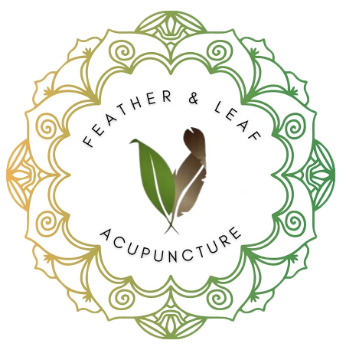Three Reasons To Incorporate Herbal Medicine
Herbal medicine has been around since the beginning of time. It is a natural form of medicine that comes from the earth. In the ancient days, herbal medicine was the main form of treatment to prevent, treat, and cure illness. However, it seems herbal medicine is still holding on strong. People are talking more about using "natural remedies" to address health concerns.
As an Acupuncturist, I get a lot of inquiring looks when I mention I use herbal therapy as another modality in my practice. In Traditional Chinese Medicine (TCM), herbal therapy is typically the first step in the healing process with the following therapies being acupuncture and cupping. As the saying goes, "If you are having a health issue, there is an herb for that." Herbal medicine is used in TCM to balance the energy system of an individual. It is believed in Chinese theory, that the body is treated as a whole and not just the symptoms; treating the body and the mind simultaneously.
1) Gentle on the body
2) Healing on a deeper level
The healing process with herbal therapy works internally, healing from the inside outward. When the body is distressed or overwhelmed with inflammation, there is a whole war going on internally that we are not aware of until it is too late. At that point, we experience symptoms of joint pain, rashes, headaches, fatigue, anxiety...etc. When we begin to incorporate herbs to help assist the body in the cellular fight, the body is armed with the right weaponry. Not only will the physical symptoms begin to dissipate but so will the mental and emotional.
3) Vitality and longevity
When the body feels good, so do we. Herbal therapy assists the body in what it does naturally; heal. In some studies, it has been shown that herbal therapy can help to slow down aging, improve circulation, correct digestion, and reduce oxidative stress. The biological machine we reside in can only work as good as the stuff we put in it. If the balance is regained, the body will work at its optimal function allowing us to live our full potential.
Herbal therapy is not as well known with Western medicine, however, its popularity is returning. Most people talk about looking for an alternative route with medicine and this is a great start! Work with a trained herbal practitioner who is able to walk you through the healing process as well as assist you on your healing journey.
Unlocking Nature's Pharmacy: The Benefits of Incorporating Herbal Medicine
For millennia, humans have turned to nature for healing. Herbal medicine, a cornerstone of traditional medical systems worldwide, offers a wealth of benefits for those seeking a holistic and natural approach to health and wellness. In a world increasingly dominated by synthetic pharmaceuticals, rediscovering the power of plants can be a transformative experience.
What is Herbal Medicine?
Herbal medicine uses plants, or parts of plants, for their therapeutic properties. These remedies can be consumed in various forms, including teas, tinctures, capsules, and topical creams. Unlike isolated pharmaceutical compounds, herbs contain a complex array of natural chemicals that work synergistically to promote healing.
Key Benefits of Incorporating Herbal Medicine:
- Holistic Approach:
- Herbal medicine addresses the whole person, considering the interconnectedness of mind, body, and spirit.
- It focuses on restoring balance and promoting overall well-being, rather than just treating symptoms.
- Natural and Gentle:
- Herbs are generally gentler on the body than synthetic drugs, with fewer side effects.
- They work in harmony with the body's natural healing processes.
- Preventative Care:
- Herbal medicine can be used to support overall health and prevent illness.
- Regular use of certain herbs can strengthen the immune system, improve digestion, and reduce stress.
- Treating Chronic Conditions:
- Herbs can be effective in managing chronic conditions such as arthritis, allergies, and digestive disorders.
- They can provide long-term relief and support without the harsh side effects of some pharmaceuticals.
- Supporting Emotional Well-being:
- Many herbs have calming and mood-enhancing properties.
- They can help to reduce anxiety, improve sleep, and promote emotional balance.
- Accessibility and Affordability:
- Many herbs can be grown in your own garden or purchased from local markets.
- This makes herbal medicine a more accessible and affordable option for many people.
- Synergistic affects:
- Because whole herbs contain many different compounds, they can have synergistic effects on the body, meaning that the combined effect of the plant is greater than the sum of its individual parts.
Important Considerations:
While herbal medicine offers many benefits, it's crucial to approach it with caution and respect.
- Consult a Qualified Practitioner:
- It's essential to consult with a qualified herbalist or healthcare professional before using herbal remedies, especially if you are pregnant, breastfeeding, or taking other medications.
- They can help to identify the right herbs for your individual needs and ensure that they are safe and effective.
- Quality and Dosage:
- The quality and potency of herbs can vary depending on their source and preparation.
- Always purchase herbs from reputable sources and follow recommended dosages.
- Potential Interactions:
- Herbs can interact with medications, so it's important to disclose all medications and supplements you are taking to your healthcare provider.
- Not a Replacement for Conventional Medicine:
- Herbal medicine can be a powerful tool for supporting health, but it should not be used as a replacement for conventional medical treatment when necessary.
Embrace the Power of Plants:
Incorporating herbal medicine into your lifestyle can be a rewarding way to take control of your health and well-being. By working in harmony with nature, you can unlock the healing power of plants and cultivate a vibrant and balanced life.

